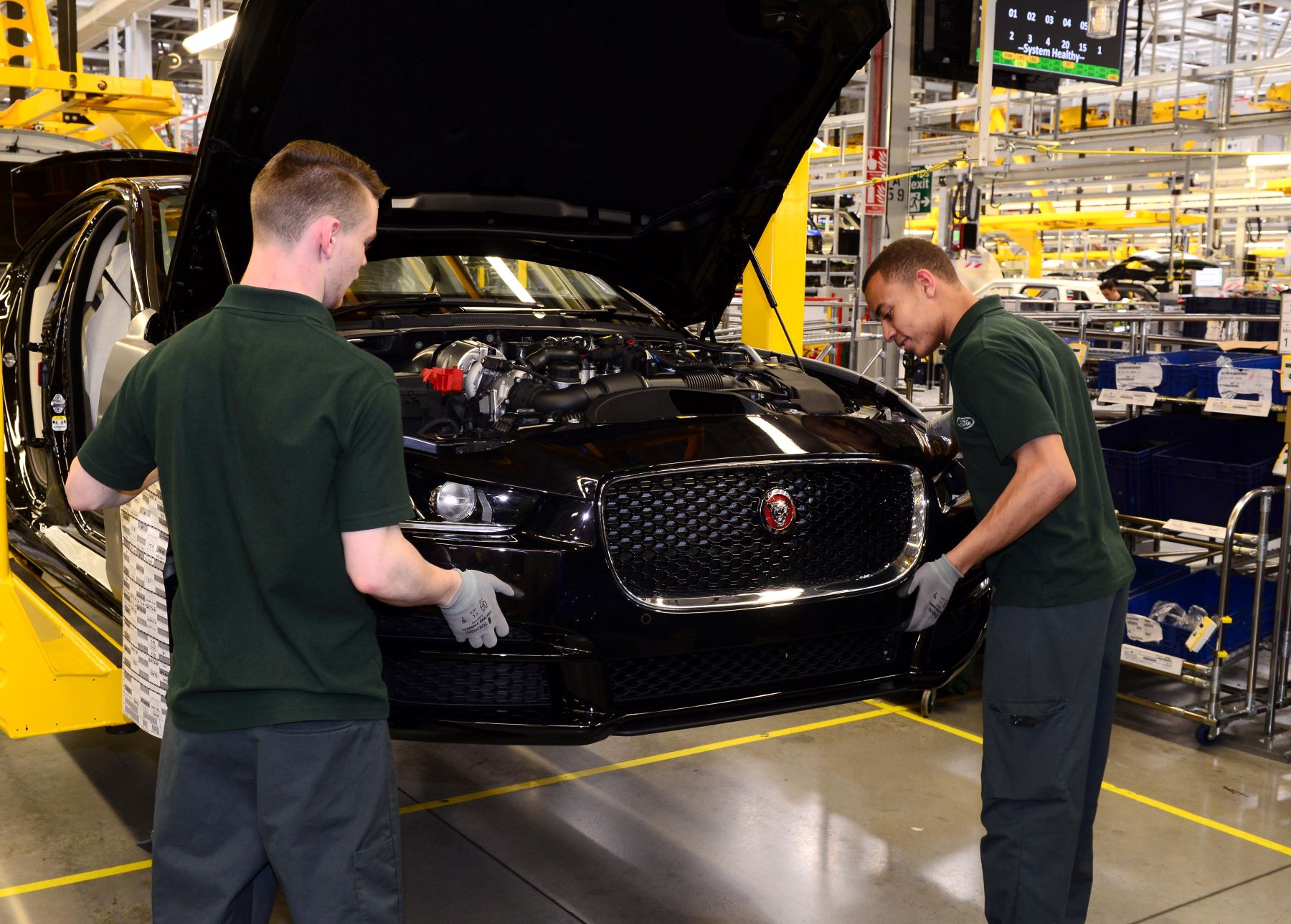
Closer EU ties would help the UK to secure battery production and save its car industry
Faced with competition from China and others, a pan-European battery supply chain is stronger than the EU and the UK working on their own.
This article was first pubished by Green Alliance
By Julia Poliscanova, senior director for vehicles and supply chains, and Richard Hebditch, UK director, at Transport & Environment.
The European car industry faces the biggest challenge in its 120 year history with the switch to electric cars and the threat of increased competition from China. The difficulty for onshore battery production is exemplified by the recent push from the auto industry to relax Brexit trade rules to avoid steep tariffs on car exports.
In the last few weeks, the German government has acted to make sure Northvolt’s new gigafactory for electric car batteries will go ahead. The French government has secured a fourth gigafactory in Dunkirk. And Glencore announced plans for a major battery recycling plant in Italy. The EU has relaxed its subsidy rules and is creating a support package through a new Net Zero Industry Act.
The British car industry is under threat
Meanwhile, in Britain there is a worrying lack of urgency and strategy, with a lack of clarity about who gets support (eg Jaguar Land Rover’s proposed battery plant) and who is left by the wayside (eg the collapse of Britishvolt’s plans for a gigafactory last year). And the ‘rules of origin’ agreed by the UK and the EU about local battery content mean that the UK car industry will see ten per cent tariffs on its electric car exports into the EU market, its largest trading partner.
As campaigners working to end emissions from transport, we could just choose to accept that the electric car future will be made in China. Chinese companies have benefited by jumping past petrol and diesel to develop electric car manufacturing from day one, often offering better products than European companies, which still hanker after their history of fossil fuel products.
But a climate transition that simply destroys jobs without creating new ones is not the just transition we need. The UK has bitter memories of 1980s deindustrialisation, where industries were left to decline, scarring communities in their wake. The public want to see action to get to net zero emissions, but support will be stronger if it works for UK jobs too.
How can this be done? The UK is the seventh largest car market in the world, with close to two million new cars sold each year. This is not insignificant. Just like how Europe’s clean car rules brought many plans to make batteries and battery components locally, the UK’s ZEV mandate will send a strong signal.
The question is how to attract investments into local supply chains and not become a dumping ground for cheap, subsidised Chinese cars.
An industrial strategy is needed
That’s where an industrial strategy building on the UK’s strengths and working with partners is needed. The UK may not be able to compete with the level of subsidies on offer from the US or China to develop the entire EV supply chain on its own. But integrating with the large EU market will help the country carve out its space in the EV industry.
Take lithium, for example. Over a third of all projects to refine lithium in Europe are planned in the UK, thanks to some global mining giants having their headquarters here. But these plans are not viable without a strong offtake from battery gigafactories. Yet, look across the channel, and at least four battery factories are planned less than 30 miles away from UK shores by companies ACC, Envision, ProLogium and Verkor in Northern France.
The UK and countries in the EU could form a sort of Europe-wide vertical value chain. Some lithium could be processed in Britain, then sent to EU countries for battery cell manufacturing. Those batteries could then be put into electric cars produced on both sides of the channel and traded without tariffs. At the end of their lives, batteries could be shipped to the UK for recycling.
Faced with competition from China and others, a pan-European battery supply chain is stronger than the EU and the UK working on their own. In the short term, a targeted green battery alliance could be launched, similar to the one Norway has with the EU. This should replace the Brexit Trade and Cooperation Agreement and replace the tariffs with a joined up EV supply chain.
Longer term, there is the need for the UK to recognise that, for industries like car making, its most important markets and supply chains are in Europe.
This is a moment of reckoning for Brexit. Easing the UK’s trading relationship with the EU should not be seen by Brexiteers as a betrayal of their principles but, instead, as essential for Britain to make a success of its net zero and industrial ambitions.
Transport & Environment UK will be hosting a webinar on how decarbonising road transport can be a success story for UK industry on 20 June.
